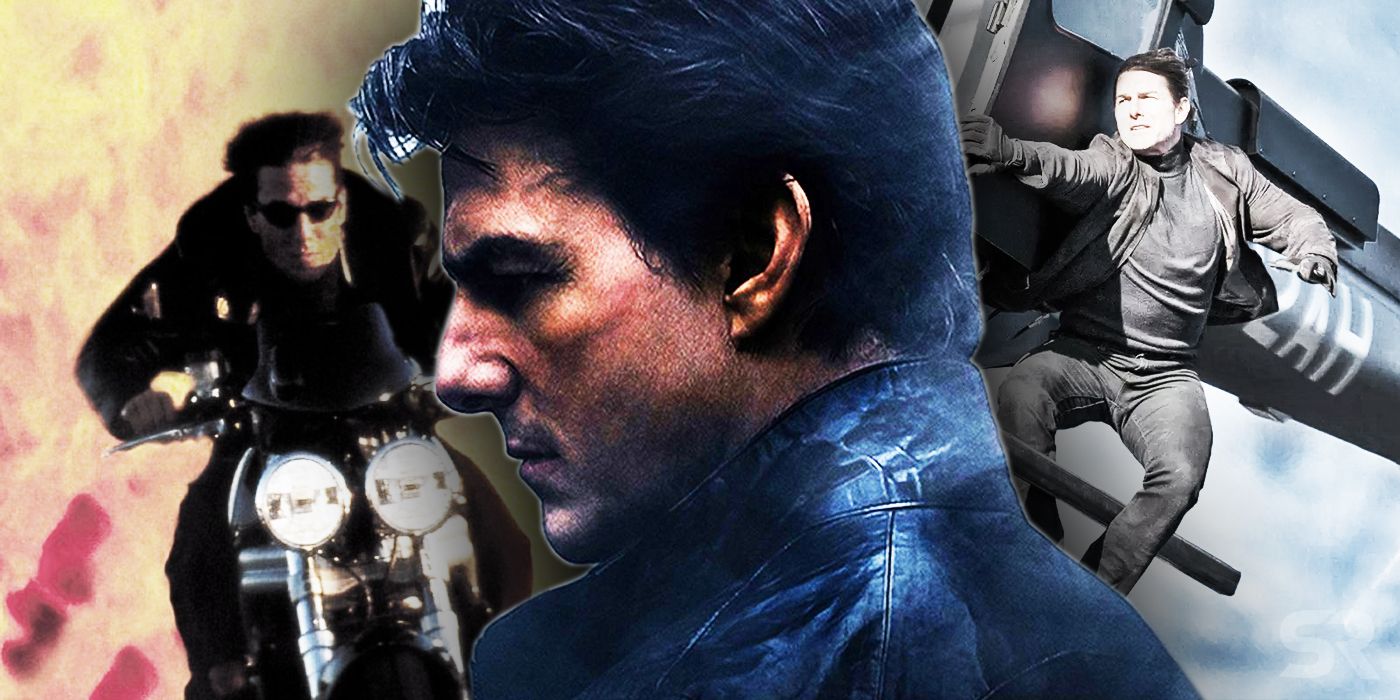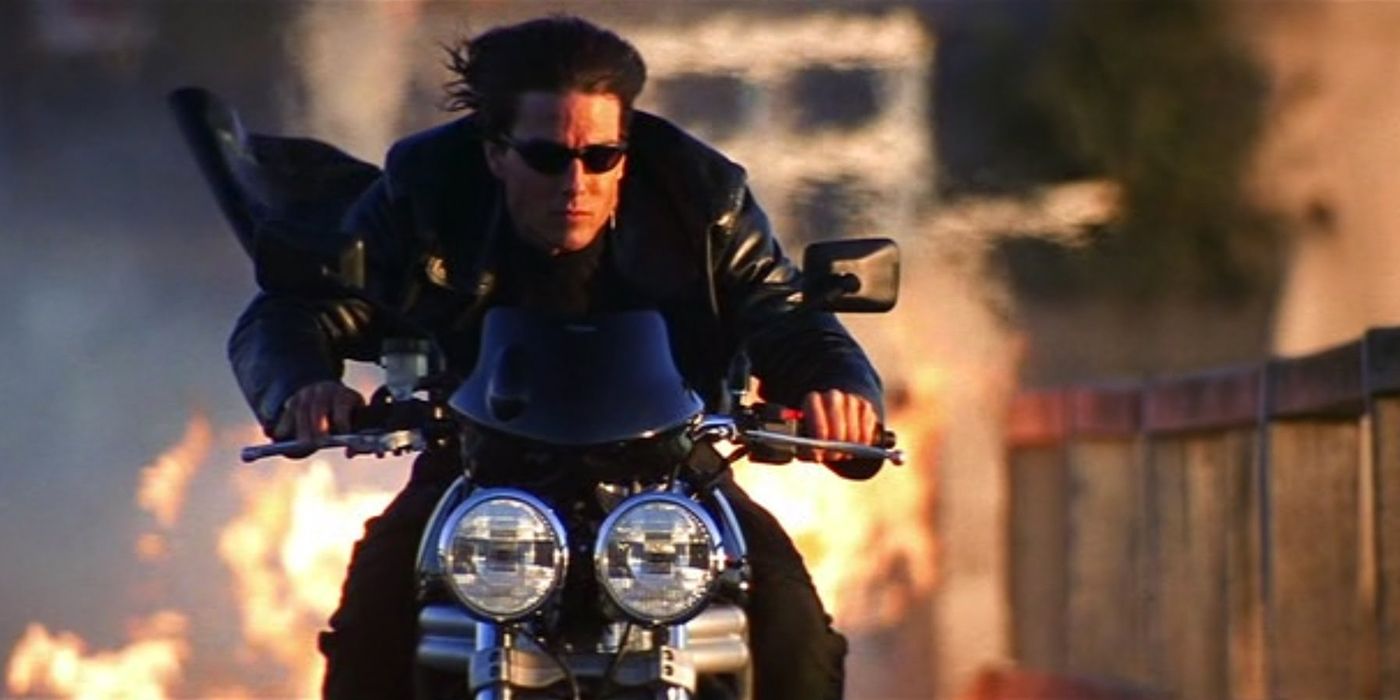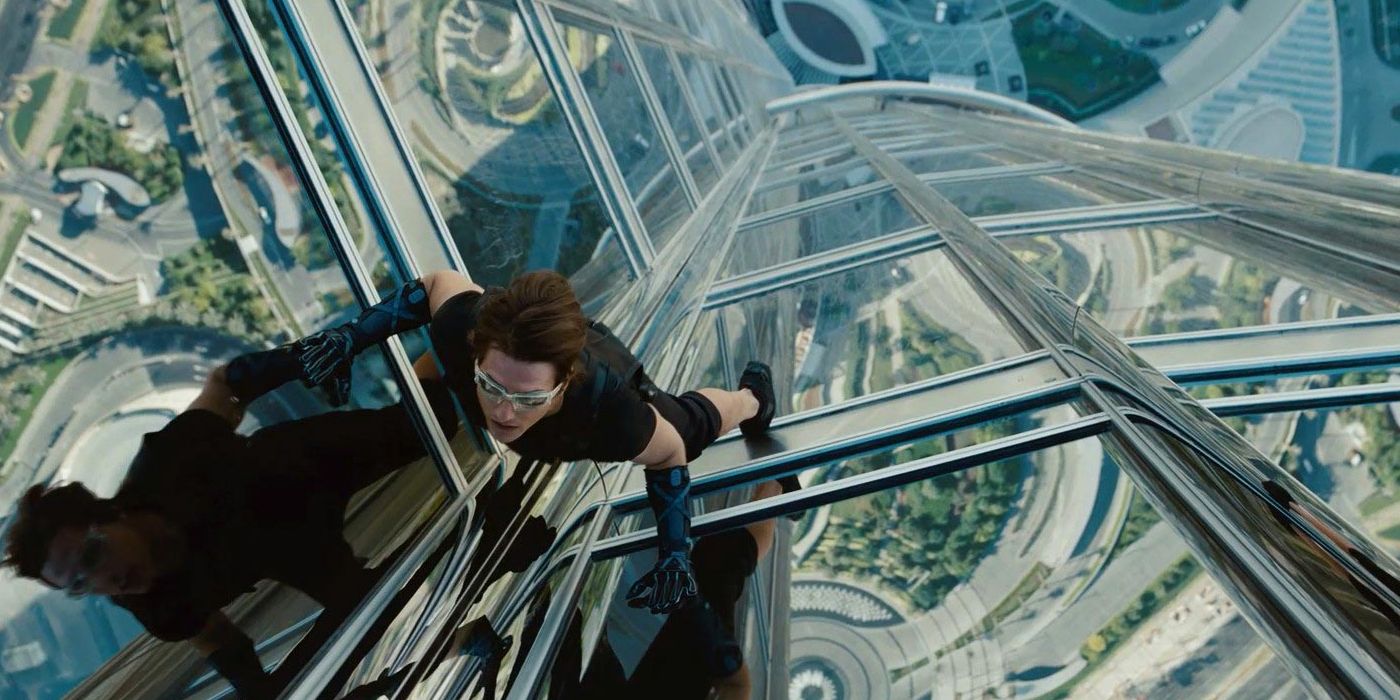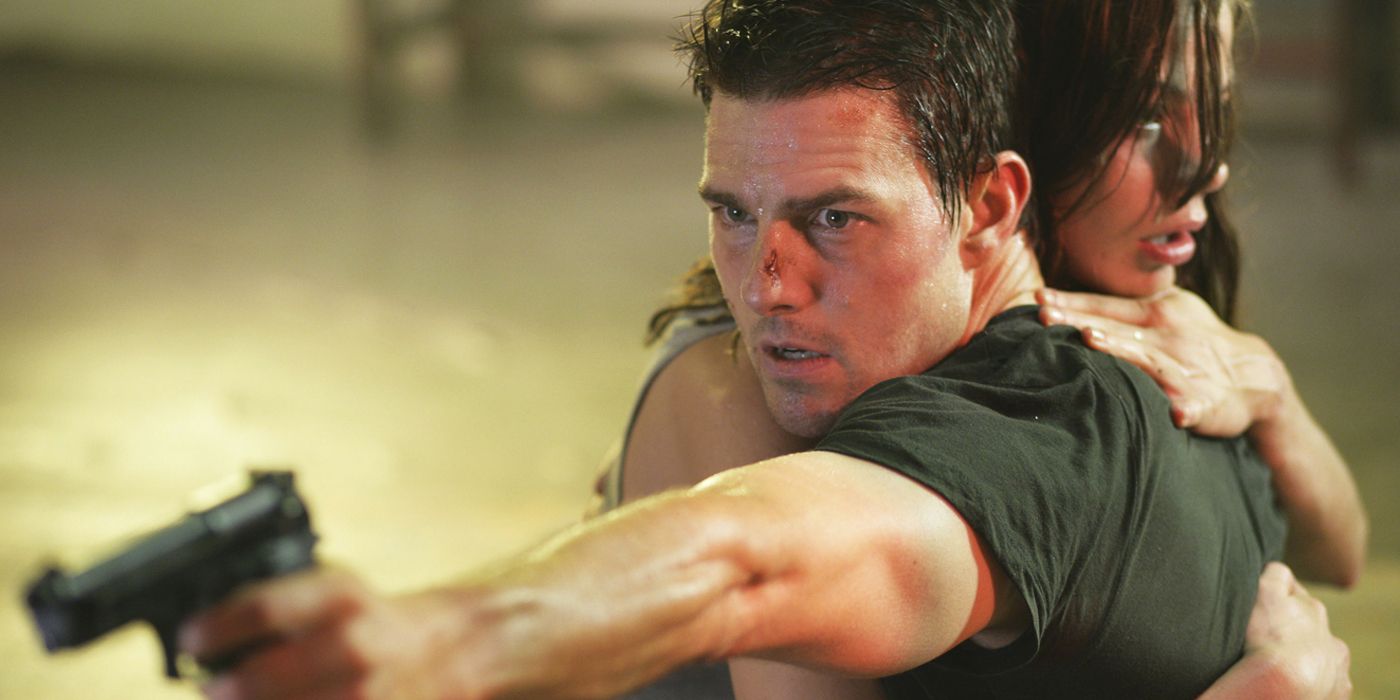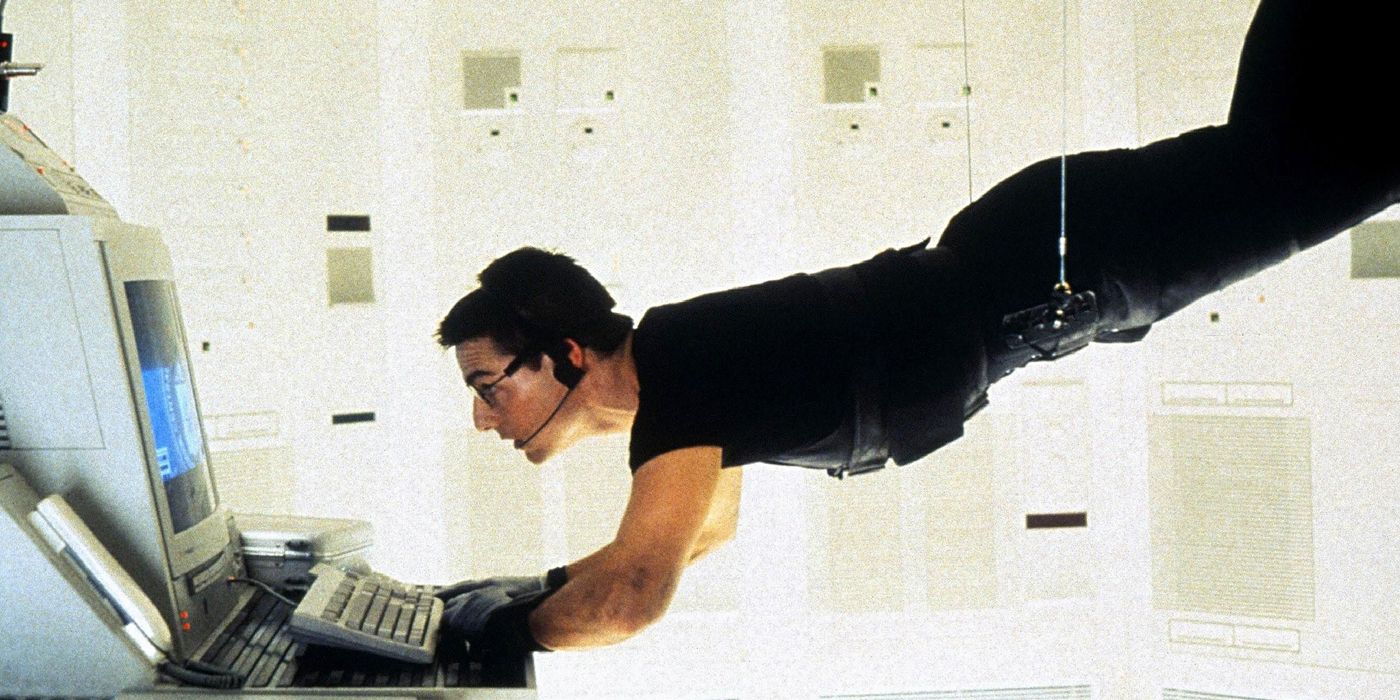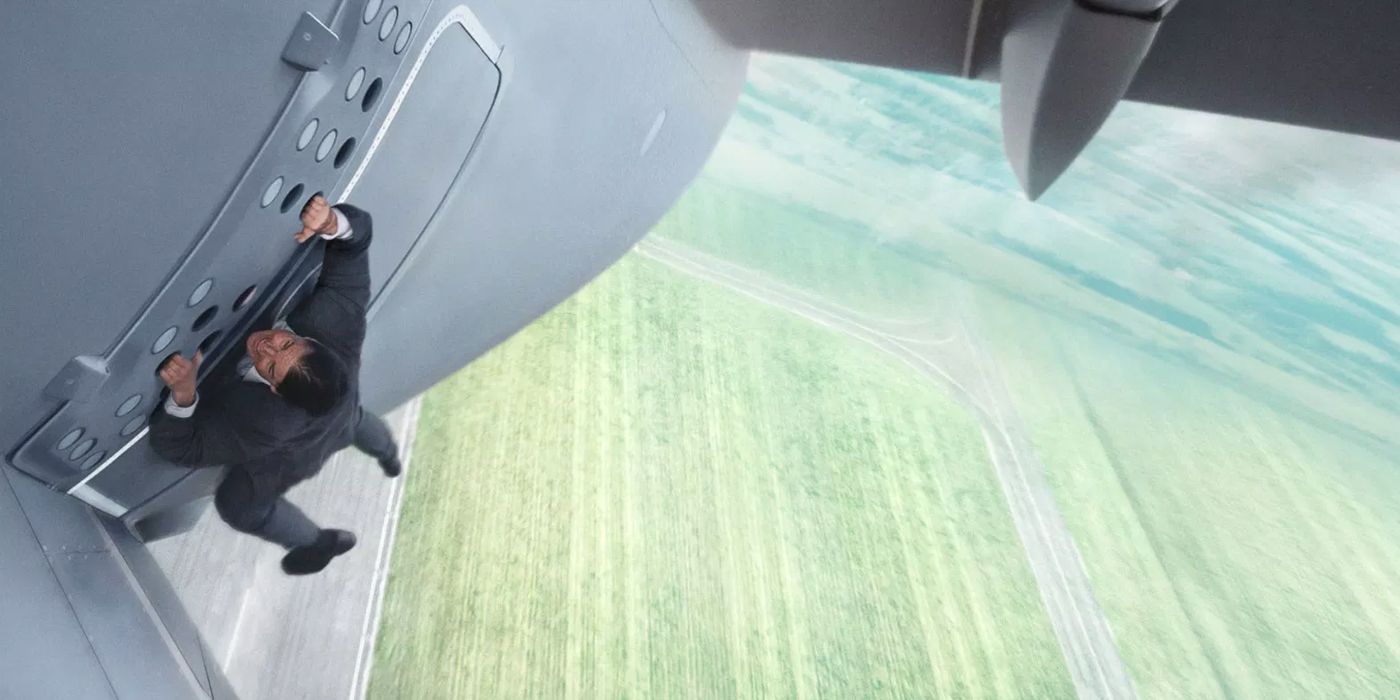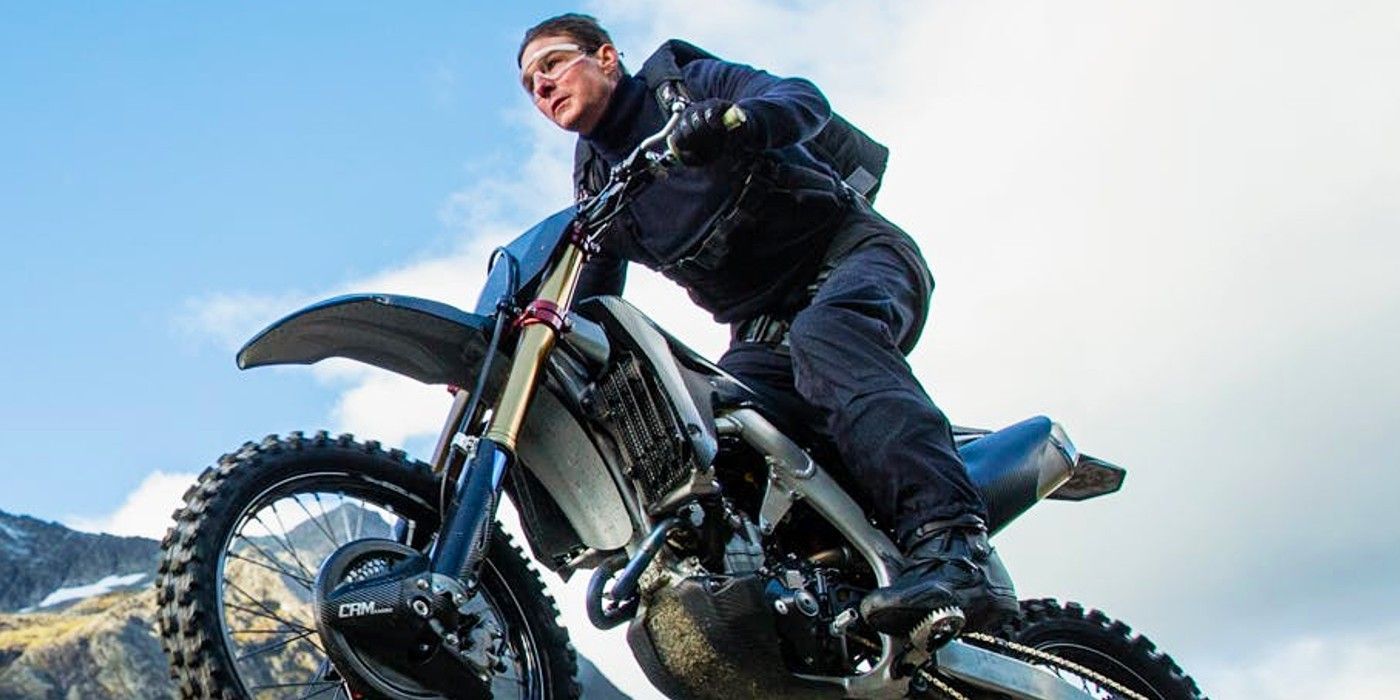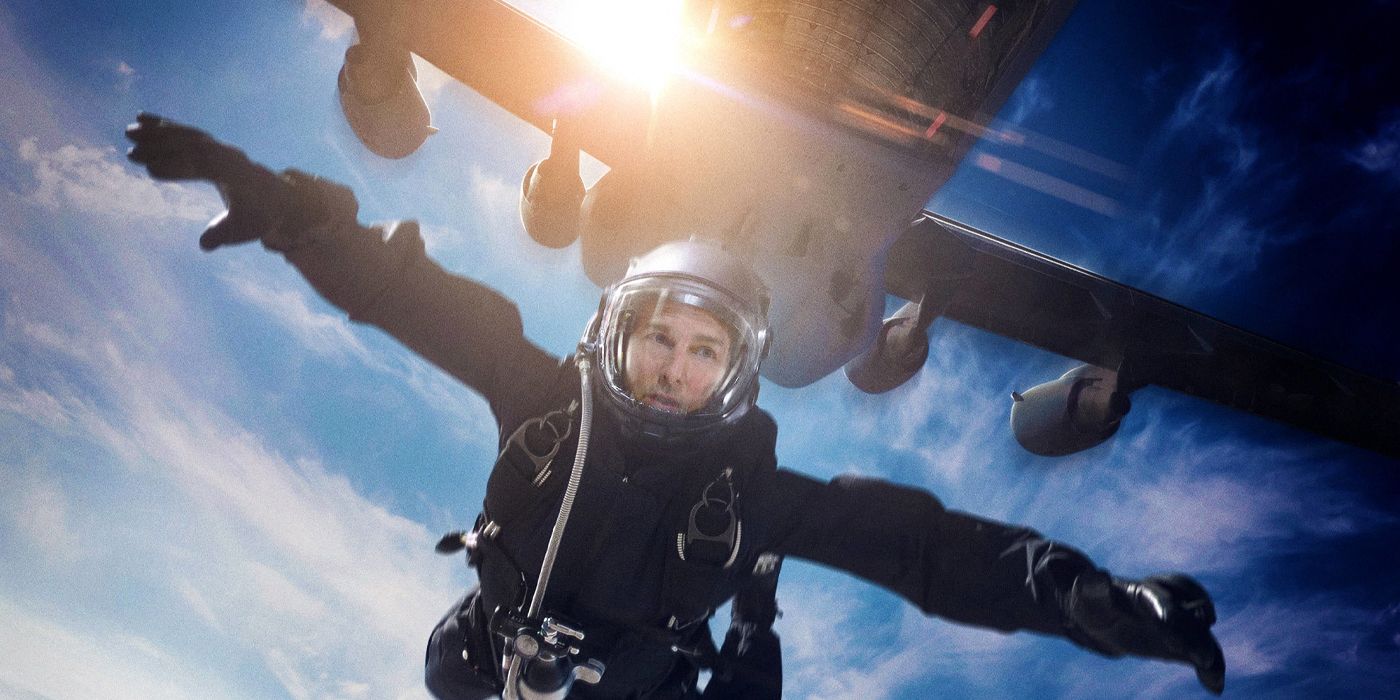Warning: Contains SPOILERS for Mission: Impossible - Dead Reckoning Part One!
The Mission: Impossible franchise has just grown once again with the release of Mission: Impossible - Dead Reckoning Part One, and here are all seven of the Mission: Impossible films ranked. Mission: Impossible is one of the most critically acclaimed action franchises of the modern era, with the movie series having gone on for nearly three decades. Mission: Impossible - Dead Reckoning Part One shows that the franchise is still going strong, with the film being a big contender when ranking the Mission: Impossible franchise.
Tom Cruise's Mission: Impossible franchise is one of the superstar actor's most iconic film series, with Cruise playing rogue IMF agent Ethan Hunt. The franchise has become known for its slick dialogue, extended action scenes, and realistic stunts, with Cruise constantly putting himself in danger in order to make the best film possible. Mission: Impossible - Dead Reckoning Part One is only the most recent entry in the series, and with more Mission: Impossible movies on the way, this ranking could be seriously shaken up in the future.
Mission: Impossible II
Mission: Impossible II was the highest-grossing movie of 2000, which goes a long way to show how bizarre that pre-Harry Potter/Lord of the Rings era of tentpoles was. It's a pretty standard-for-the-time sequel, putting the most recognizable element of a box office hit - Tom Cruise, masks - in a totally new environment - the Australian suburbs - but even with (or perhaps because of) John Woo putting his slow-mo dove stamp on Mission: Impossible, the film never rises above ridiculous. Moreso than any other entry, Mission: Impossible II has dated, and the cheese shows. The Thandie Newton-as-object-of-all-desire plot (which as many have noted comes straight from Hitchcock's Notorious) is an interesting angle but winds up peculiarly steamy, while Dougray Scott (whose part is mainly remembered for being the one that blocked him from Wolverine) isn't quite the mirror-image villain he attempts to be.
And yet despite that, it's still rather enjoyable, remarkably so considering it's the weakest entry in a long-running series: can the likes of Jurassic Park or The Mummy claim their lowest point is still watchable? The overuse of masks is delightfully farcical (especially since it was called out in Ghost Protocol) and even if Tom Cruise's performance of Ethan Hunt is unlike in any other Mission: Impossible film, his all-in action approach is palpable.
Mission: Impossible - Ghost Protocol
The Burj Khalifa sequence at the center of Mission: Impossible - Ghost Protocol is quite possibly the franchise's defining moment. It's a lengthy scene built almost entirely around Tom Cruise's desire to do death-defying things at extreme heights for authentic entertainment and is so well-established and integrated that any other skyscraper exterior action feels trite by comparison. It's truly a "worth the price of admission" setpiece that showed just what the franchise was capable of.
The rest of the film works well enough but never matches those heights: it opens with CG Kremlin destruction and ends with a CG fight in a high-tech parking garage; the story is somewhat unclear on how to use Ethan in relation to his team (which now includes then-potential-replacement Jeremy Renner). What Brad Bird deserves enduring praise for is continuing the reinvention started in Mission: Impossible III while inserting some more self-aware humor to keep the series from becoming po-faced during the early-2010s period of peak grit. That this can place so "low" shows just how good the Mission: Impossible franchise is.
Mission: Impossible III
At the time, going from Brian De Palma to John Woo to a TV creative may have felt like a downgrade, but nobody quite reckoned for J.J. Abrams. From a modern perspective, it makes perfect sense: the pioneer behind reboots of both Star Trek and Star Wars, his feature debut likewise reinvigorated the Mission: Impossible franchise (which had at this point been dormant for six years). Now, Abrams didn't change the formula per se, but did lay down several key aspects that have come to define the series' longevity.
So, for the most part, Mission: Impossible III is plainly a solid entry in the series, with exciting enough action (albeit nothing to rival the thrills of what came next) and a plot that uses Abrams' questionable mystery box to great effect (with Mission: Impossible III standing purely on its own, there's no unfilled tease, even if the Rabbit's Foot MacGuffin isn't all that novel). But Abrams' characters are what make this entry stand out. The team aspect is back at the forefront, Phillip Seymour Hoffman's Owen Davian is the most memorable villain in the series (that mid-flight interrogation as startling as any of Cruise's stunts), and for the first time we got to properly explore the personal side of Ethan Hunt.
Mission: Impossible
Given where Mission: Impossible is now - Tom Cruise jumping off things for real - it's easy to view the original as something quaint; the biggest thing Tom Cruise jumps down from is a ceiling vent. But not only was it pretty startling for the time - the core team is killed in the opening mission and TV show lead Jim Phelps is the secret villain, a canon change tantamount to making Luke Skywalker a hermit - Mission: Impossible also maintains much of its thrill today. It all lies on Brian De Palma, who approached this reboot of a well-known TV series with the same rigor as Scarface, with regular dialogue scenes as focused as the action; the Dutch angle paranoia of Ethan realizing he's a suspect is exposition at its best.
And that action is definitely fantastic for its attention to tension. The Langley break-in may be a simple enough on paper compared to what comes later, but Cruise still did the drop for real and De Palma is meticulous in how he makes two beads of sweat the most important thing in the world for a far-too-long minute. The franchise's continued growth means that Mission: Impossible is revisited more often than many other mid-1990s tentpoles anyway, but even without five more films to mark it out, it's one of the best.
Mission: Impossible - Rogue Nation
The preceding two movies had begun to form what Mission: Impossible could be - stunt-based, a wink-wink continuity, overall fun blockbusters - but it was Mission: Impossible - Rogue Nation that refined it. The film opens with a single shot that would be the centerpiece of another entire franchise - Cruise clinging to the side of a plane taking off - and goes breakneck into a lightning mix of twisty plot and integrated action that never lets one of the plates drop; Christopher McQuarrie had proven himself as a master thriller writer with The Usual Suspects and this expands that, throwing in new elements like Ilsa Faust (Cruise's best co-lead) and evolving static aspects like Renner (who feels like he now inhabits his own slot).
The finale where the scheming, emotionally-involved villain is captured in a moody London night earned copious comparisons to Spectre (released just a few months later in 2015), almost all of them deferential to Mission: Impossible; it had been on the tip of many tongues for a while, but here it seems Ethan Hunt had actually overtaken James Bond.
Mission: Impossible - Dead Reckoning
As the seventh film in the long-running Mission: Impossible franchise, it is incredible that the series can still be this great this late in the game. Mission: Impossible - Dead Reckoning Part One manages to give Ethan Hunt more characterization than ever, going more in-depth on the IMF agent's backstory than ever before. The film really shakes up the series' villain formula, with Hunt this time having to take on a rogue AI with god-like powers. While the film does once again center around a MacGuffin as so many of the other films do, it manages to keep the stakes high throughout the longest Mission: Impossible movie.
Once again, the stunts are the highlight of Mission: Impossible - Dead Reckoning Part One. The fight on top of the train, the extensive Rome car chase, and Tom Cruise's now-iconic motorcycle cliff jump are all incredible, although they don't reach the heights of the helicopter chase and the bathroom fight in Mission: Impossible - Fallout. Mission: Impossible - Dead Reckoning is an incredible film that exceeds almost all of its predecessors, with the exception of the film that is in the top slot.
Mission: Impossible - Fallout
It can be far too easy to claim the latest entry in a franchise is the best in the bubble of hype, but in the case of Mission: Impossible - Fallout it's totally warranted. Everything is a step-up on Rogue Nation, already established as the previous best. The stunts are even more audacious - the 106 HALO jumps make for a hand-clamming sequence early on, while the helicopter chase in the finale is so maintained for so long it's amazing entire beats from the trailers were cut - the humor more balanced, the filmmaking more astute - like De Palma, action and dialogue are treated with equal opportunity for flair - the story more reaching - just wait to see how many threads from this film and others before come together perfectly in the last 30 minutes - and with its villains the series manages to use the typically convoluted story to explore genre cliches.
Above all, though, what makes Mission: Impossible - Fallout so great is how it dissects Ethan Hunt. Tom Cruise's character has evolved across the Mission: Impossible series for sure, but not all of it was organic, creating what many view as a blank archetype - something McQuarrie's worked hard to correct. This did start in Rogue Nation, but in Mission: Impossible 6 the entire movie is constructed around attempting to figure out just what creates this "force of nature" and trying to recontextualize him in the real world. What are his strengths beyond running fast? His weaknesses aside from a predisposition breaking the rules? The answer is obvious to anyone paying attention and ties into what the series once was, but to see it so earnestly delivered alongside everything else is an emotional powerhouse.

